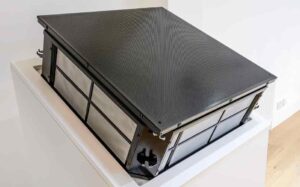F-gas phasedown plan may be unfeasible in Britain
18th December 2022
UK: The UK has echoed European concerns with regard to the revision of the F-gas regulations and admits that Great Britain may struggle to match the EU phasedown proposal.
The F-gas assessment report from DEFRA was published on Friday following consultation with UK industry stakeholders on issues including containment, phasedown, bans, training, certification, trade and legal loopholes.
The European F-gas regulation (517/2014) passed into UK law following Brexit and, as in Europe, the governments of the UK, Scotland and Wales (Great Britain) have a legal duty to undertake a comprehensive review of the regulation. Northern Ireland remains tied to the EU regulation but the Northern Ireland Executive was involved in the F-gas discussions and updates between the other three governments.
In many aspects the UK stakeholders have echoed the concerns and observations of their European counterparts, particularly with regard to the phasedown and its effect on heat pumps, training and countering the illegal trade.
The UK government has previously indicated that it would follow the European regulation or even extend it. However, the DEFRA report admits that initial European phasedown modelling may be unfeasible for the Great Britain market.
“Even in the most ambitious scenario (European Commission’ Scenario), which assumes industry is able to comply with all the proposed bans and timeframes, the phasedown is still more ambitious than initial modelling suggests may be feasible for the Great Britain market,” it says
Likely reasons for this are the differences between initial usage and sectoral composition between Great Britain and EU markets and differing likely impacts of application bans.
The F-gas regulation sets a baseline for usage based on prior demand. Relative to the EU, the UK used less air conditioning at the beginning of the phasedown. The DEFRA report argues that the EU has already observed considerable cost-effective abatement in air conditioning (resulting in lower average costs for Southern Europe) and continues to anticipate further cost-effective abatement. At the same time the UK has proposed a slightly more ambitious heat pump rollout which is likely to increase the use of HFCs in some residences.
“This and other factors may limit the ability of Great Britain to match the EU Commission’s phasedown targets,” the report says.

The European Commission’s proposed bans also establish a maximum GWP varying by application, based on the highest GWP gas that might be needed. The EU modelling assumes that much of industry will be able to go further than these bans by widespread use of HFOs and natural refrigerants, but, while the Great Britain model does not use any HFCs with a GWP above the maximum permitted by the proposed bans, it assumes greater reliance on HFC blends at or near that maximum than the European Commission’s model.
“Consequently, [UK] modelled demand is likely higher than under the Commission’s assumptions used to develop their proposed new phasedown schedule,” the report says.
Heat pumps
Fears in Europe that the proposal to ban the use of HFCs with GWPs of 150 or more in new heat pumps from 2027 would conflict with EU plans to rollout of this technology in the move away from fossil fuels are echoed in the UK. Such a move would leave propane, a gas which is still under numerous application restrictions due to its flammability, as the only currently available alternative. There are also concerns expressed in Europe that the timeline is too short for manufacturers to carry out the necessary development and testing.
These concerns are amplified in the UK where the government has proposed a more ambitious heat pump roll-out.
Although propane currently only holds a small share in the Great Britain market for hydronic heat pumps, it is a suitable alternative for monobloc systems. For split hydronic heat pumps propane is unlikely to be a safe alternative to R410A, the report says.
With R32 already gaining a significant market share, the report argues that the scale of the government’s heat pump rollout would mean that if industry was to rely on R32 alone the heat pump rollout could consume most of the available quota even under the existing HFC phasedown.

Training
UK stakeholders have made clear that training is vital to overcome the flammability concerns which are seen as a barrier to the deployment of lower GWP refrigerants.
“The flammability classification of a gas should require technicians to have an appropriate level of skill and to take the appropriate level of care in the installation, maintenance and servicing of a product throughout its life and at its end-of-life disposal,” the DEFRA report says. “Relevant training is also important when dealing with gases with higher toxicity (ammonia) or where high pressure is required,” it adds.
Stakeholders also highlighted concerns that, while end-users can only purchase pre-charged systems where evidence is provided that the installation will be carried out by a certified individual, there are no requirements for retaining that evidence to allow for compliance checks.
This is seen by stakeholders as a loophole that could be closed if sellers were required to keep records of who equipment was sold to, especially given the projected increase in heat pump sales. However, concerns have also been raised about end-users accessing the F-gas registers and using those individuals or company details to make false installation claims.
Industry sources have also suggested some leakage may be the result of untrained service technicians working illegally on F-gas equipment. DEFRA says that while it is difficult to determine the scale of this problem, industry suggest it is still prevalent and may require either better training or enforcement.
Illegal trade
While the European Commission proposals pay particular attention to the illegal HFC trade, the DEFRA assessment admits that it is not possible to predict the extent to which the UK market is vulnerable to illegal imports. Despite being raised as a “significant concern” the assessment makes no firm proposals other than whether electronic record keeping might make it easier to identify illegal activity.
The F gas regulation in Great Britain Assessment report can be read and downloaded here.







